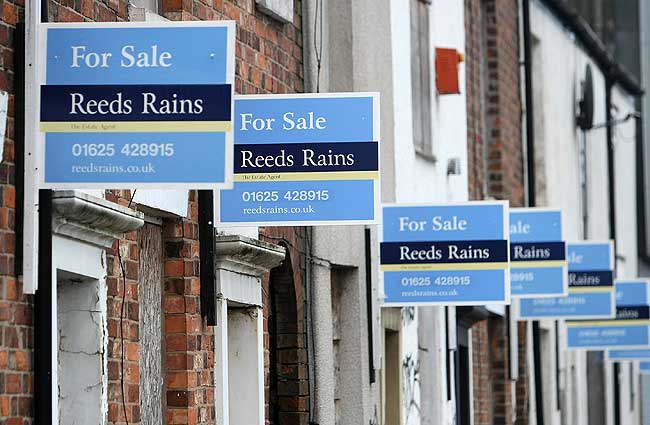Your support helps us to tell the story
From reproductive rights to climate change to Big Tech, The Independent is on the ground when the story is developing. Whether it's investigating the financials of Elon Musk's pro-Trump PAC or producing our latest documentary, 'The A Word', which shines a light on the American women fighting for reproductive rights, we know how important it is to parse out the facts from the messaging.
At such a critical moment in US history, we need reporters on the ground. Your donation allows us to keep sending journalists to speak to both sides of the story.
The Independent is trusted by Americans across the entire political spectrum. And unlike many other quality news outlets, we choose not to lock Americans out of our reporting and analysis with paywalls. We believe quality journalism should be available to everyone, paid for by those who can afford it.
Your support makes all the difference.House prices fell by 2.5 per cent in May, the Nationwide said today. The figure represents the biggest monthly fall recorded by the building society and is much worse than the 0.5 per cent expected by most economists.
The annual decline is also the biggest since December 1992 when house prices were falling at an annual rate of 6.3 per cent.
Fionnuala Earley, Nationwide's chief economist, said: "The pace of house price falls accelerated in May as more weak economic news added to the gathering momentum of negative sentiment about the housing market."
Would-be borrowers have been struggling to find mortgages following the credit crunch, but the building society said gloomy data from the Bank of England and the Royal Institution of Chartered Surveyors had hit market confidence.
Nationwide's figures deal a blow to tentative hopes of a recovery after the British Bankers' Association earlier this week reported a small rise in the number of loans for house purchases, to 38,704, in April, although this remains 39 per cent below a year earlier.
Meanwhile official inflation has hit 3 per cent after spiralling oil and food prices, and is expected to soar further still later this year - reducing the chances of help through sustained interest rates cuts because of the Bank of England's 2 per cent inflation target.
But Ms Earley added that the blow to confidence from falling prices could yet prompt the Bank's Monetary Policy Committee to lower borrowing costs as the growing risks to the economy outweighed short-term inflation fears.
"The decision will be very difficult, with new highs in oil prices, but as higher prices of essential items squeeze consumer spending power, and housing market weakness weighs down on confidence, the balance of risks to inflation in the medium term could shift enough to lead the MPC to cut rates sooner than the markets currently expect," Ms Earley said.
Despite the gloomy figures, Nationwide said house prices were still 5 per cent higher than two years ago and 10 per cent higher than in May 2005.
Borrowers are much better placed to weather the storm than in the early 1990s because fewer people have bought at the top of the market, they are paying bigger deposits, and there are fewer interest-only mortgages, the building society added.
More conservative lending will also lead to fewer borrowers falling behind on payments.
"Tighter credit conditions in the market at present are making it more difficult for borrowers to obtain loans at higher loan-to-value ratios.
"While this is frustrating for those in that position, more stringent underwriting criteria should ultimately lead to fewer overstretched borrowers and hence a more stable and sustainable market," Ms Earley added.

Join our commenting forum
Join thought-provoking conversations, follow other Independent readers and see their replies
Comments